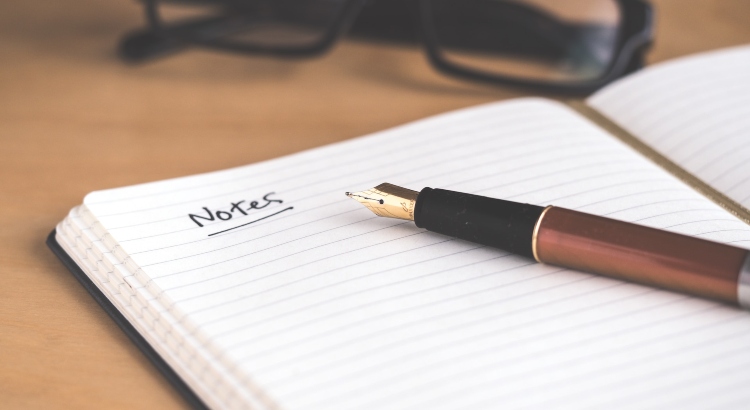Recording Interviews vs. Taking Notes: Which Is Better?
Interviewers collect valuable information by either recording the conversation or by taking notes during the discussion. Each method offers unique advantages and challenges. This guide compares recording interviews and taking notes, helping you decide which method fits your needs best.
Recording Interviews
Recording an interview involves capturing audio or video using a digital recorder, phone, or computer. Many people prefer this method because it ensures all spoken words are saved for later review.
Benefits of Recording Interviews
- Accuracy: Recordings capture every word, exact phrasing, and the speaker’s tone of voice. This reduces the risk of missing details or misquoting the interviewee. Accuracy is vital for research, legal, and media interviews (Nature, 2021).
- Focus: When recording, the interviewer can focus more on the conversation and less on writing notes. This makes it easier to ask thoughtful follow-up questions and engage naturally.
- Comprehensive review: A full recording lets you revisit the interview to catch important details or clarify confusing points. It also allows for professional transcription services after the fact.
Drawbacks of Recording Interviews
- Technical issues: Equipment can fail, or recordings may be unclear due to background noise or low volume. This could mean lost data or extra work filtering out noise.
- Time commitment: Listening to a full recording takes as long as the original conversation—sometimes longer. Transcription can speed things up but adds another step.
- Privacy concerns: Not everyone is comfortable being recorded. Some interviewees may speak less openly, especially on sensitive topics.
- Storage: Audio or video files use significant digital storage space, requiring efficient organization and backup plans.
When to Choose Recording
- When accuracy, verbatim detail, and tone are critical.
- For long, complex, or sensitive interviews where reflecting back is important.
- If you intend to use automated transcription or plan to archive the conversation for future reference.
Taking Notes During Interviews
Note-taking means jotting down important points, quotes, or answers while the interview takes place. This classic approach remains popular in many fields.
Benefits of Taking Notes
- Efficiency: Reviewing notes takes far less time than re-listening to a recording. Notes can be organized and shared quickly.
- Control: Interviewers choose which points to highlight, allowing them to focus on what matters most.
- Privacy: No audio files are stored. This helps in situations where interviewees prefer not to be recorded.
- Minimal equipment needed: Pen and paper or a laptop are all you need—no worries about batteries or audio quality.
Drawbacks of Taking Notes
- Risk of missing details: It’s easy to overlook a key point or misquote someone, especially during fast-paced discussions.
- Divided attention: Writing while listening can make it hard to stay fully engaged with your subject.
- Potential bias: The note-taker decides what to write down, which might leave out subtle but important information.
When to Choose Taking Notes
- When time is limited and a fast summary is needed.
- If privacy or interviewee comfort is a priority.
- For straightforward interviews where accuracy down to the exact word isn’t necessary.
Recording vs. Taking Notes: Key Factors to Consider
- Accuracy Needed: Use recordings for full accuracy, especially in legal, research, or journalistic contexts.
- Time Available: Choose note-taking if you need quick results and don’t plan to revisit the discussion verbatim.
- Privacy and Consent: Always ensure interviewees are comfortable and give consent if you plan to record.
- Budget and Tools: Digital recorders and transcription services may have costs; taking notes is generally free.
Combining Both Methods for Better Results
Many professionals blend both methods for the best outcome. For example, you can:
- Record the interview (with consent) and use AI transcription for a quick text version.
- Take brief notes to highlight key points, mark timestamps, or jot down topics to revisit.
- Order transcription proofreading services to ensure accuracy in your written records.
Blending both approaches allows better focus during the interview and speedy access to important details afterward.
Other Interview Documentation Options
Besides audio, video recordings and related services can make interviews more accessible:
- Closed caption services create readable captions for the hearing impaired.
- Subtitling services offer translations and accessible video content.
- Text translation services help reach a global audience.
- Audio translation service provides spoken translations for wider communication.
Conclusion: Which Interview Documentation Method Is Best?
There is no one-size-fits-all answer. Recording is best for capturing every word and ensuring accuracy. Note-taking is quicker and more private, but may leave out details. Sometimes, using both methods offers the best of both worlds.
If you need reliable, fast, and affordable support for interview transcription or captioning, GoTranscript provides solutions tailored to your needs. Explore options like transcription services, captioning, or AI transcription subscriptions. Check transcription pricing and captioning services pricing, or order transcription and order captions today.


 Transcription
Transcription
 Captions (FCC/SDH)
Captions (FCC/SDH)
 Transcript Editing & Proofreading
Transcript Editing & Proofreading
 Translation (text/audio/images)
Translation (text/audio/images)
 Subtitles
Subtitles
 Video Description (AD)
Video Description (AD)









